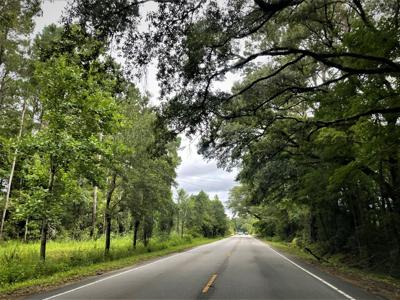Business
Charleston County Plans Infrastructure Requirements for Zoning Changes

Charleston County is taking steps to address concerns over new development by proposing a requirement for adequate infrastructure before property can be rezoned for more intense use. During a recent planning commission meeting, real estate interests raised issues regarding the potential impact of these changes.
The planning commission’s review marks the first phase of a process initiated in September 2023, when County Council members recognized that infrastructure was not part of the criteria for zoning approvals. They directed planning staff to draft an amendment to incorporate this essential element. On November 10, 2023, the commission discussed proposals that would require developers seeking zoning changes for increased density to submit letters of coordination from relevant agencies, including the S.C. Department of Transportation, the Charleston County School District, and emergency service providers. These letters would assess how proposed developments could affect local roads, schools, and emergency response times.
While some developers and residents expressed support for these proposed changes, a representative from the Charleston Trident Association of Realtors raised concerns about the broad scope of the requirements. They suggested that more targeted approaches, such as establishing a timeline for obtaining coordination letters and exempting smaller properties, could be more effective. As a result, the commission decided to postpone a vote until next month to allow county staff to revise the proposed changes.
Establishing an Urban-Suburban Line
To further address the issue, it is recommended that Charleston County collaborate with municipal governments to delineate an urban-suburban line across the region’s developed areas. This line would clarify where denser development is appropriate and where it is not, streamlining the process for developers. Instead of navigating the complex task of securing numerous letters from various government agencies, developers would simply refer to a map indicating suitable areas for growth.
Several local governments in the Charleston region have previously established similar urban growth boundaries to protect rural character. An urban-suburban line would explicitly outline areas ideal for increased density, facilitating better planning and development.
The recent Reality Check 2.0 report indicated a strong community preference for growth that is connected and appealing, emphasizing existing road networks rather than encroaching on rural landscapes. As such, the establishment of an urban-suburban line would clarify where increased density could be accommodated, addressing rising concerns among local voters about inappropriate development locations.
Future Steps for Local Governments
The ongoing debate at the state level regarding whether to allow cities and counties to create concurrency programs is another important aspect of this issue. These programs would enable local governments to base rezoning decisions on the adequacy of infrastructure and public services. Although the passage of such legislation is uncertain, it would serve as a foundational step for local governments.
To proactively manage growth, Charleston County and its municipalities should consider adopting an urban-suburban line as part of a comprehensive planning process. This approach would not only direct new development to appropriate areas but also safeguard rural and suburban regions adjacent to these areas.
Regardless of the path taken—whether implementing policies requiring developers to submit letters regarding infrastructure adequacy, creating a new zoning map that reflects existing infrastructure, or developing a concurrency program in the future—local councils must commit to these new strategies and base their rezoning decisions accordingly.
The proactive steps being considered in Charleston County could set a precedent for effective growth management while addressing community concerns about development occurring in unsuitable locations.
-

 Science1 month ago
Science1 month agoIROS 2025 to Showcase Cutting-Edge Robotics Innovations in China
-

 Science2 weeks ago
Science2 weeks agoUniversity of Hawaiʻi at Mānoa Joins $25.6M AI Initiative for Disaster Monitoring
-

 Lifestyle1 month ago
Lifestyle1 month agoStone Island’s Logo Worn by Extremists Sparks Brand Dilemma
-

 Health1 month ago
Health1 month agoStartup Liberate Bio Secures $31 Million for Next-Gen Therapies
-

 World1 month ago
World1 month agoBravo Company Veterans Honored with Bronze Medals After 56 Years
-

 Politics1 month ago
Politics1 month agoJudge Considers Dismissal of Chelsea Housing Case Citing AI Flaws
-

 Lifestyle1 month ago
Lifestyle1 month agoMary Morgan Jackson Crowned Little Miss National Peanut Festival 2025
-

 Health1 month ago
Health1 month agoTop Hyaluronic Acid Serums for Radiant Skin in 2025
-

 Science1 month ago
Science1 month agoArizona State University Transforms Programming Education Approach
-

 Top Stories1 month ago
Top Stories1 month agoIndonesia Suspends 27,000 Bank Accounts in Online Gambling Crackdown
-

 Sports1 month ago
Sports1 month agoMel Kiper Jr. Reveals Top 25 Prospects for 2026 NFL Draft
-

 Business1 month ago
Business1 month agoTruist Financial Increases Stake in Global X Variable Rate ETF








